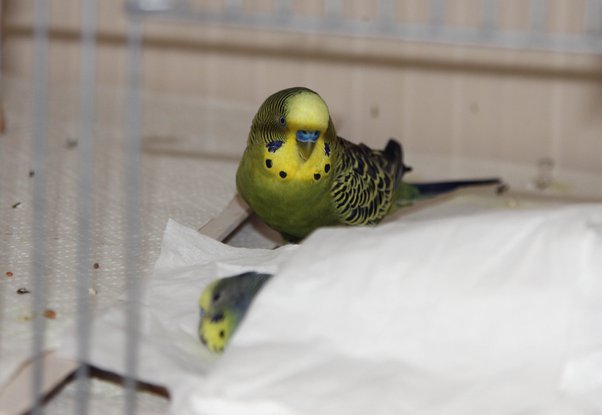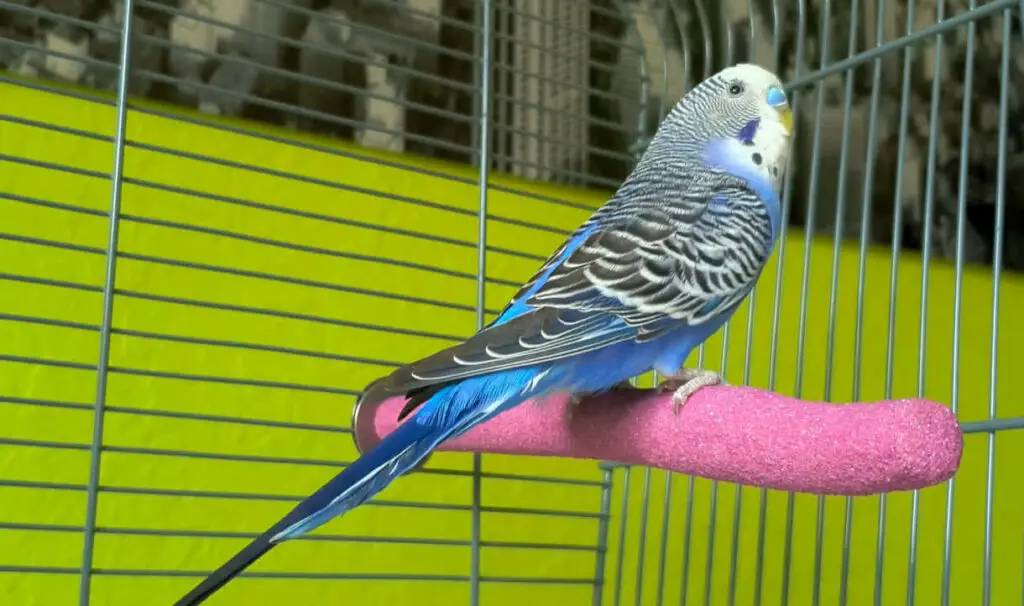Losing a parakeet is a heart-wrenching experience for any budgie owner, leaving behind unanswered questions and a sense of profound loss. “Why did my parakeet die?” echoes in the minds of those who cherished these vibrant companions. In this comprehensive exploration, we delve into the common causes of parakeet deaths, unraveling the mystery behind these delicate creatures’ unexpected departures. Understanding the factors contributing to their demise is not only a quest for closure but also a proactive step toward ensuring the health and well-being of future feathered friends.

Contents
Why Did My Parakeet Die?
There are 3 main reasons for the death of your parakeet. It includes respiratory problems, nutritional deficiencies, infections and diseases. All three of these factors stem from underlying health problems.
Respiratory problems
Parakeets are prone to respiratory issues. This issue is often caused by poor air quality, dusty environments, or exposure to cigarette smoke. If a parakeet displays signs of labored breathing, nasal discharge, or wheezing, it is crucial to seek veterinary assistance promptly.
Nutritional deficiencies
Inadequate nutrition is a leading cause of health problems in parakeets. Parakeet owners must ensure their pets receive a balanced diet rich in essential nutrients. A deficiency in vitamins or minerals can lead to weakened immune systems and various health issues.
Infections and diseases
Parakeets can fall victim to various infections and diseases, from bacterial and viral infections to parasitic infestations. Regular veterinary check-ups can help detect and address these issues early, improving the chances of successful treatment.
Signs of Illness in Parakeets
Recognizing the signs of illness in parakeets is crucial for early intervention. Parakeet owners should be observant of both behavioral changes and physical symptoms.
Behavioral changes
Changes in activity level, such as lethargy or excessive sleeping, may indicate an underlying health problem. Additionally, altered eating habits, such as a sudden loss of appetite, and unusual vocalizations could be signs of distress.
Physical symptoms
Pay close attention to your parakeet’s physical appearance. Changes in plumage, including ruffled feathers or a lack of preening, may signify health issues. Labored breathing and the presence of swelling or lumps should be addressed promptly with a vet visit.

Importance of Veterinary Care
Regular veterinary check-ups are essential for maintaining the health and well-being of pet parakeets. Even if a parakeet appears healthy, routine examinations can detect potential issues before they become severe.
- Encouraging regular check-ups
Parakeet owners are encouraged to schedule regular check-ups with an avian veterinarian. These professionals specialize in bird care and can identify health concerns that might go unnoticed by the untrained eye.
- Recognizing signs requiring immediate attention
Certain symptoms demand immediate veterinary attention. These include difficulty breathing, severe injuries, or sudden behavioral changes. Prompt action can be the difference between successful treatment and a tragic outcome.
- Preventive care
Preventive care plays a pivotal role in keeping parakeets healthy. This includes vaccinations, parasite prevention, and maintaining a clean and safe living environment. Consulting with a vet about a tailored preventive care plan is crucial for parakeet owners.
Preventive Measures for Parakeet Owners
Preventing health issues in parakeets involves proactive measures that address their physical and emotional needs.
- Creating a safe and stimulating environment
Ensure the parakeet’s cage is spacious, clean, and free from potential hazards. Providing toys, perches, and mental stimulation helps keep them active and engaged, contributing to overall well-being.
- Providing a balanced and nutritious diet
A healthy diet is fundamental to a parakeet’s well-being. Offering a variety of fresh fruits, vegetables, seeds, and a high-quality pellet mix ensures they receive essential nutrients. Consult with a vet to determine the best diet for your specific parakeet.
- Regular health monitoring and check-ups
Establishing a routine for monitoring your parakeet’s health, including observing behavior and physical condition, is crucial. Regular veterinary check-ups, even if the bird appears healthy, contribute to preventive care.
How to Cope with Parakeet’s Loss
Losing a parakeet is an emotional experience, and parakeet owners may find solace in understanding and acknowledging their grief.
- Acknowledging grief
It is essential for parakeet owners to recognize and validate their feelings of grief. Parakeets often become cherished family members, and the loss can be akin to losing any other beloved pet.
- Sharing experiences with other parakeet owners
Joining online forums or local support groups for parakeet owners can provide a platform to share experiences and find comfort in the shared bond of pet ownership. Others who have faced similar losses can offer understanding and empathy.
- Choosing memorial options
Creating a memorial or dedicating a special space to the departed parakeet can provide a sense of closure and remembrance. This might include planting a tree, crafting a memorial plaque, choosing a good parakeet dying bottom cage or simply cherishing photos and memories.
Frequently Asked Question
Yes, parakeets can sometimes die suddenly. There are reasons why this might happen such as underlying health issues, genetic predispositions, accidents, or even age-related complications. Some health conditions may not show noticeable symptoms until the bird is critically ill. This makes it challenging for owners to detect problems in the early stages. So, the owner should provide regular veterinary check-ups, a balanced diet, and a clean living environment for parakeets. If your parakeets have any unusual signs, bring them to the vet as soon as possible.
Yes. Stress is not the direct cause of parakeet death. However, stress can contribute to health issues in parakeets and may even lead to death. Common stressors for parakeets include changes in the environment, loud noises, the presence of predators or other pets, and disruptions to their routines. Prolonged or intense stress can weaken the bird’s immune system, making them more susceptible to illnesses. It is essential to create a calm and secure environment, provide mental stimulation, and minimize potential stressors for parakeets.
Yes, coldness can lead to a parakeet’s death. Parakeets are tropical birds and are not well-equipped to tolerate cold temperatures. Prolonged exposure to low temperatures can result in hypothermia, a condition where the bird’s body temperature drops dangerously low. Signs of a cold-stressed parakeet may include lethargy, shivering, fluffing up of feathers, and a decrease in normal activity. To prevent this, parakeet owners should keep their birds in a warm and draft-free environment.

